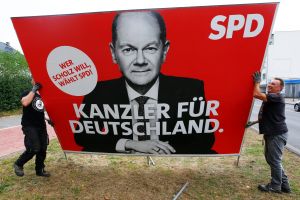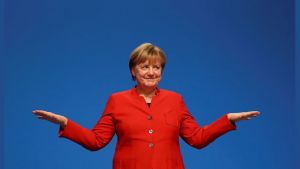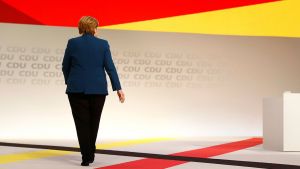Will German Elections Set a New Direction after Merkel?
 Play Podcast
Play Podcast
German voters prioritized stability in the first post-Merkel election—voting for the party who most emulated the former chancellor’s approach to government, the Social Democrats (SPD), instead of Merkel’s Christian Democratic Union (CDU). What does the narrow SPD victory tell us about the German political landscape and important Western trends like populism? Ulrike Franke and Sheri Berman join Deep Dish to explain how potential coalition governments could shape German foreign policy and the relationship with the United States.






Related Content
 Global Politics
Global Politics
In this episode of #AskIvo, Council President Ivo Daalder explains what we can expect after German Chancellor Angela Merkel leaves office.
 Global Politics
Global Politics
In this episode of #AskIvo, Council President Ivo Daalder looks at three big issues rising to the surface in German politics on the eve of her departure.
 Global Politics
Global Politics
Sheri Berman, professor of Political Science and author of Democracy and Dictatorship in Europe, explains why the Alternative for Germany (AfD) has emerged as a formidable populist challenger to the two long-dominant parties in Germany, the social democrats and the Christian democrats.
